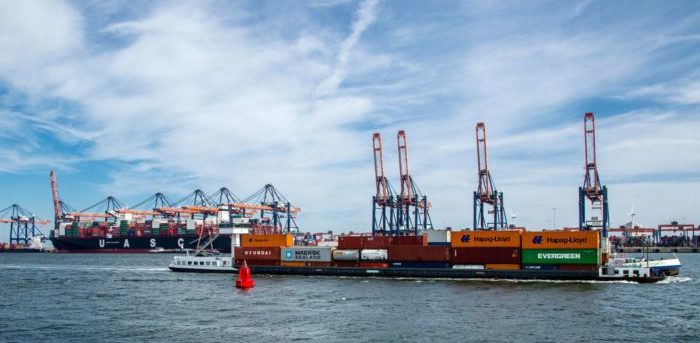In its recently-published figures for the first half of 2018, the port of Rotterdam reported a throughput of 232.8 million tonnes, which is 2.2% less than in the first six months of 2017. Container throughput, one of the strategic priorities of the Port Authority, rose by 5.9% (in tonnes, 6.2% in TEU) by comparison with the first six months of 2017, including a new throughput record in May.
Highlights
- Total throughput in port of Rotterdam: 2.2% down on first half of 2017
- Increase in container throughput continues (+5.9%)
- Clear fall in throughput of crude oil (-7.6%) and coal (-11.9%), partly as a result of the planned closure of coal-fired power plants
- Revenue and operating result of Port Authority stable, net result strongly influenced by one-off ‘paper’ benefit associated with accounting for the fiscal opening balance sheet
- Important steps made for the Energy Transition
However, the rise in container handling did not offset the fall in the throughput of wet and dry bulk. The decline in bulk goods was mainly seen in the throughput of coal, crude oil and mineral oil products such as fuel oil. Coal transshipment fell because of, among other things, the closure of coal-fired power plants, lower energy production by plants that were still in operation and a reduction in the flow of cokes for the steel industry. Striking growth segments were LNG and biomass, which more than doubled by comparison with throughput volumes in the same period last year.
The financial position of the Port Authority was stable in the first half of 2018. Revenue from port dues fell off slightly but rental and leasehold income from issued land increased slightly. The result before taxation remained virtually unchanged at € 126.1 million.
In addition, significant progress has been made in the past six months in the field of the Energy Transition. For example, a Climate Act was passed by the Lower House of the Dutch Parliament. In order to fulfill the ambitions set out in that Act, a large number of measures have been identified at the Rotterdam-Moerdijk Industrial Table that could result in a reduction of carbon emissions by 10 million tonnes.
The authority is, for example, working with the recommendations in the Wuppertal 2 report and collaborating with leading ports in the world to develop a joint programme to improve efficiency and reduce carbon emissions, and also to promote the use of clean fuels and clean technologies in shipping.
Explore more herebelow:





























































